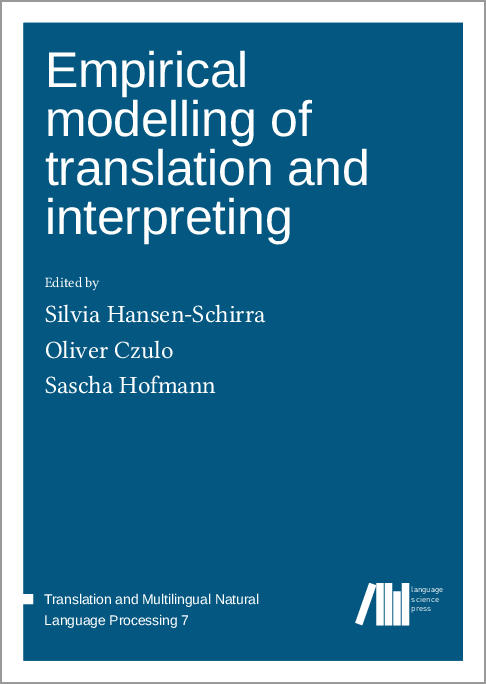We log anonymous usage statistics. Please read the privacy information for details.
Empirical modelling of translation and interpreting
Synopsis
Empirical research is carried out in a cyclic way: approaching a research area bottom-up, data lead to interpretations and ideally to the abstraction of laws, on the basis of which a theory can be derived. Deductive research is based on a theory, on the basis of which hypotheses can be formulated and tested against the background of empirical data. Looking at the state-of-the-art in translation studies, either theories as well as models are designed or empirical data are collected and interpreted. However, the final step is still lacking: so far, empirical data has not lead to the formulation of theories or models, whereas existing theories and models have not yet been comprehensively tested with empirical methods.
This publication addresses these issues from several perspectives: multi-method product- as well as process-based research may gain insights into translation as well as interpreting phenomena. These phenomena may include cognitive and organizational processes, procedures and strategies, competence and performance, translation properties and universals, etc. Empirical findings about the deeper structures of translation and interpreting will reduce the gap between translation and interpreting practice and model and theory building. Furthermore, the availability of more large-scale empirical testing triggers the development of models and theories concerning translation and interpreting phenomena and behavior based on quantifiable, replicable and transparent data.
Chapters
-
Predicting cognate translation
-
The influence of self-monitoring on the translation of cognates
-
Modelling the analysis of translation memory use and post-editing of raw machine translation outputA pilot study of trainee translators’ perceptions of difficulty and time effectiveness
-
Sketch of a Noisy Channel Model for the Translation Process
-
Language processing and translation
-
Cognitive effort and explicitation in translation tasks
-
Changes of word class during translationInsights from a combined analysis of corpus, keystroke logging and eye-tracking data
-
What does a translator do when not writing?
-
Universals of editing and translation
-
News translationText analysis, fieldwork, survey
-
Audiovisual speech decreases the number of cognate translations in simultaneous interpreting
-
Making the impossible possible, or how to research in specific settings in public service interpreting
-
On the achievement of question-answer sequences in doctor-patient interpreter-mediated interactionsSome notes on coordination as mediation
-
“All I know is that I know nothing?”Empirical evidence of self-confidence and inexperience in novice vs. professional translators
-
Comparing novices and semi-professionalsFalse friends as a case in point
-
MetamindsUsing metarepresentation to model minds in translation
-
Cognitive economy and mental worldsAccounting for translation mistakes and other communication errors
-
Aspects of a primacy of frame model of translation




